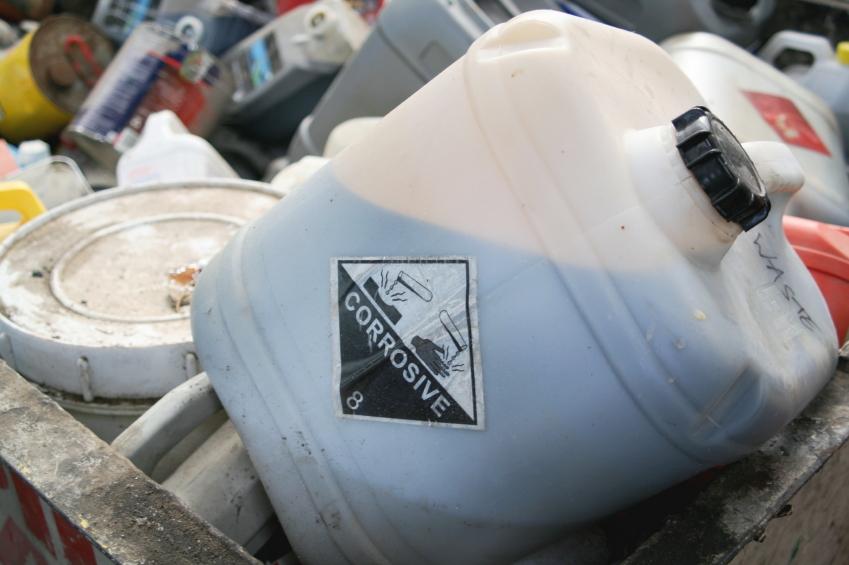
You might not realize it, but your business or municipality could be at risk of violating medical waste guidelines. Don’t worry, though. We’re here to help you understand the risks and how to avoid them.
What Is Medical Waste?
Medical waste is any refuse that contains blood, body fluids, pathological wastes, cultures, and stocks of infectious agents. It can also include items like bandages, dressings, and devices that have come into contact with blood or other potentially infectious materials.
Medical waste that is not effectively handled or disposed of could cause serious health risks, both to the public and the environment. In particular, improper disposal of medical waste can lead to the potential spread of infectious diseases, as well as hazards from accidental needle-sticks and other injuries. Medical waste may contain viruses, bacteria, and other infectious materials, which can contaminate soil, surface water, and groundwater.
Businesses and municipalities that generate medical waste, and those who transport, store, treat, and dispose of it, must follow applicable regulations. Medical waste violations can result in hefty fines and civil penalties, as well as possible criminal charges. If a business or municipality is found liable for violating a regulatory agency’s medical waste guidelines, they may have to pay to remediate any contamination caused by their actions.
How does its work
Therefore, it is essential for businesses and municipalities that are responsible for medwastemngmt to ensure they are in compliance with the applicable regulations. Businesses and municipalities should take steps to educate themselves and their staff about these regulations, and develop solutions that minimize the environmental risk of medical waste violations. They should also use proper equipment for handling and disposing of medical waste. This includes proper labeling and storage containers, as well as the appropriate technology for disposing of it safely. Additionally, businesses and municipalities should consider employing an expert in medical waste disposal to ensure that they remain in compliance with regulations.
If your business or municipality generates medical waste, it’s important to understand and follow the guidelines for handling and disposing of it. Noncompliance can result in serious penalties, including fines and even jail time.
Who Is Responsible for Medical Waste Compliance?
In general, the responsibility for medical waste compliance falls on the entity that generates the waste. This includes businesses, schools, municipalities and any other organization that creates medical waste. However, it’s important to note that everyone involved in the handling and management of medical waste is responsible for adhering to state and federal regulations.
This means that if you’re a business owner, it’s not enough to simply generate medical waste and send it off to be handled by someone else. You need to make sure that the company you’re working with is compliant with all applicable regulations. And if you’re a school administrator, it’s not enough to simply rely on the janitorial staff to handle your medical waste properly. You need to create and enforce policies and procedures for handling and managing medical waste.
What Are Common Noncompliance Violations in Medical Waste Management?
Are you aware of the risks your business or municipality faces when it comes to medwastemngmt management? Chances are, you’re not. And that’s why it’s important to be educated on the subject matter.
There are a number of common noncompliance violations in the medical waste management industry. Some of these include:
- -Improper disposal of contaminated materials
- -Failing to properly mark medical waste containers
- -Not training employees on proper medical waste handling procedures
- -Not having a designated medical waste coordinator on staff
If your business or municipality is found guilty of any of these violations, you could face hefty fines and even jail time. So it’s important to be proactive and ensure that your organization is in compliance with all medical waste management regulations.
How Can You Ensure You is Business or Municipality Is Compliant With Medical Waste Management Regulations?
When it comes to medical waste management, ensuring compliance is key to avoiding costly fines and potential liability issues. The best way to ensure your business or municipality is compliant is to stay informed about the latest regulations and industry standards. It’s also important to establish a system for proper medical waste segregation and disposal, including clear policies and guidelines, employee training, and regular reviews.
In addition, it’s important to have a comprehensive plan for managing medical waste from collection through treatment and disposal. This should include a reliable service provider that can collect and dispose of the waste according to appropriate regulations. It’s also recommended that you work with a provider that has experience dealing with medical waste so they can provide sound advice on the best way to handle materials like sharps containers, hazardous chemicals, and bio hazardous materials.
What Are the Consequences of Noncompliance With Medical Waste Management Regulations?
If your business or municipality doesn’t comply with medical waste management regulations, there can be a variety of serious consequences. Depending on the individual circumstances, these can range from civil fines to criminal penalties and even jail time.
For instance, if it’s a case of improper waste disposal, local health departments may issue a cease-and-desist order for your business or municipality to stop illegal dumping. On top of that, if you’re found guilty of dumping medical waste into public sewers you could face significant fines or even jail time.
Additionally, noncompliance with medical waste management regulations can lead to costly lawsuits. These can occur when other businesses. The public at large experience harm due to improper medical waste disposal activities by your organization. That’s why it’s so important to know the laws. In your geographical area and make sure you are following them closely.
Conclusion
Although the consequences of violating medical waste guidelines can be significant. Many organizations are not even aware of the guidelines, let alone the consequences for violating them. Take a moment to assess your organization’s compliance risk and take steps to mitigate any potential violations.